Description
The book of Effortless : make it easier to do what matters mostis a clear example of slow and steady action, and the reader wants to move forward at a reasonable pace and continuously, instead of making hasty decisions and stormy actions.
introduction Effortless
From the author of the book Originalism with the sale of millions of copies comes a powerful guide to achieve your goals.
It all starts with a simple principle: everything should not be too hard.
Have you ever felt:
Are you on the verge of burnout?
Do you want to be more involved, but do not have enough energy?
Do you run faster but do not get close to your goals?
Is everything much harder than before?
As successful people, we have come to believe that the only way to succeed is to work tirelessly. If we want to achieve too much, we have to work too hard, think too much and go to extremes.
If we are not constantly tired, it means we are not working hard enough. We are stuck in the endless circle of “zooming in, eating, sleeping, repeating”. We often try twice as hard to get only half as much as we should.
The book of negligence teaches you how to:
Turn boring work into fun.
Solve problems before they arise to avoid frustration. Instead of stepping up, set a steady pace.
Once you make a decision that eliminates many future decisions, convenience is not the way to laziness. It’s a smart way. It may even be the only way. Not every hard work can be made easy in life. But more important things can be made easier.
Negligence
We all like to do hard work as easily as possible, but the fact of the matter is that this is not possible most of the time because big work is more difficult than it is important. For this reason, we should not seek to simplify the path of some success at all, and we should work hard to achieve it.
But the important point is how we react to the stress and anxiety and side effects we encounter along the way. We must learn to be simplistic in the face of many possible issues and events and to pass them by easily so as not to deviate from the main path.
About the book of negligence
The economic situation has become very difficult for all the people of the world. We try harder than we conclude, and this makes us ashamed;
It affects our relationships with others, and stress in critical situations pervades our whole being. The book relaxation teaches us how to deal with problems by managing our decisions and simplifying the processes we need to take to achieve our goal.
The book’s author, McKeon, teaches his audience practical and applied methods to do the erosive work with pleasure and motivation.
It should be noted that this book is not intended to solve or eliminate your problems, but by reading this book we will learn how to properly deal with unforeseen issues. Comfortism is a different way of looking at things.
The goal is not to fall short of ideals and do less work, but to do all the necessary work as painlessly as possible. By reading this book, you will learn how to choose the simplest possible path to achieve your goals.
There have been many critiques of the book Comfortism, including that of Yves Rudski, author of the book Fair Play; “When fear, uncertainty and overwhelming responsibilities surround us, this book will help us do the right thing at the right time,” he says.
About McQueen Author of Negligence
Greg McKeown was born in 1977 in London. He studied journalism and communications for a bachelor’s degree at the university, and went on to pursue a master’s degree in business administration at Oxford University.
He is a New York Times bestselling author, speaker, management and business planner, and influential on social media. Greg McKeon is a regular contributor to Harvard Business Magazine and is active on LinkedIn.
The influential New York Times bestselling book McKeon, “Fundamentalism: Stick to the Principle and Release the Subsidiary,” or “Necessity; Principled Tendency to the Lowest is his first work, published in 2014 and acclaimed worldwide.
In a part of the book, we read Effortless
What if it could be done easier?
“It’s four o’clock in the morning and I’m taking a Photoshop photo?” Really?”
Kim Jenkins wanted to do something that really mattered. But he was crushed under pressure and could not do anything. The reason was that the university where he worked was expanding rapidly. The number of clients has doubled in the last few years, but they have practically the same number of employees and resources as before.
they did. As the organization expanded, so did the complexities. New internal policies were established in the organization that were difficult to interpret.
A new boring system was created to handle compliance. The processes became heavy and complex, and recently all their projects and programs required more energy and time.
Well-meaning people were added to the system, but no one left. They had turned something that was once simple into something insanely complex and unreasonable. As a result, the effort required for his daily work had become Haft Khan Rostam.
Kim used to be hard on himself. “I thought if I didn’t try too hard and sacrifice my time,” he says. “I will be very selfish.” Then suddenly one day Kim noticed something. Everything was harder than it should be and with
“Achieving this understanding,” he said to himself, “I could easily have layered things as they are with unreasonable complexity. “I could see the complexity getting bigger every day and I was drowning under all that pressure.”
Concluded that it is time for change; Whenever you reach a very difficult task. “Is there an easier way?” He asked himself. It was soon possible to test his method.
A faculty member called him and asked if his film crew was available to record a full semester of one of the classes. If it had been a while ago, Kim would have jumped in the middle of the story without thinking and spent four months working with his entire team, looking for ways to go further; Add music.
Introduction and end and graphic works. This time he thought there might be an easier way to achieve the desired results. A short conversation revealed that the videos were for a single student who could not attend classes because of a sports contract.
He did not need a video with great filming and editing. We are all interested in doing the hard work in the easiest way possible, but the fact of the matter is that this is not possible most of the time because big things are difficult compared to their importance. They also have more. For this reason, we should not seek to simplify the path of some success at all, and we should work hard to achieve it.
But the important point is how we react to the stress and anxiety and side effects we encounter along the way. We must learn to be simplistic in the face of many possible issues and events and to pass them by easily so as not to deviate from the main path.
Introducing the book of Effortless: easier to do the most important things
What can happen in your life if easy but meaningless things become harder and necessary things become easier? The New York Times bestselling book negligence is about a whole new way of living and working.
Greg McKeon shows you the way to achieve more with less effort; A way to lighten the heavy and inevitable burden of life and achieve the right results, without getting tired and exhausted.
About the book Effortless:
“If we do not make life easier for each other, then what do we live for?” Says George Elwitt.
Life is awkward. Everything we do has a kind of beat. Sometimes you have to push yourself and work hard, and sometimes you need to rest and strengthen; But these days, most of you are always struggling as much as you can. There is no beat, whatever it is, it is just an exhausting effort.
You live in an age where you have many opportunities ahead of you; But modern life is like high altitude mountaineering. Your mind is not working well and it seems to be foggy.
The ground beneath your feet looks shaky. The air is thin and you feel that even three centimeters of progress is strangely boring. Perhaps this is due to endless fear and uncertainty about the future. Maybe because of loneliness and isolation.
Maybe because of financial worries and problems. Maybe because of responsibilities; All the pressures that suffocate you on a daily basis. Whatever the reason, the result is that you work twice as much, but you get half your former salary because your salary has not changed.
Life is really hard in every way: both complicated and heavy and sad and boring. Disappointment is hard. Paying bills, strained relationships, raising children and losing loved ones is hard. At times, every day of life is difficult.
Pretending that a book can overcome all these difficulties is a delusion. The book Effortless: Make It Easier to Do What Matters Most was not written to make these sufferings seem insignificant, but it helps you reduce the burden of suffering. The effect may not be quite easy to tolerate hard things and how to deal with them, but it does make many hard things at least easier.
It’s normal to have big, challenging challenges that bother you, but it’s just as natural to feel overwhelmed and tired because of the frustrations and frustrations of each day.
Everyone is experiencing it, and these days it seems to happen to more and more people.
It is strange that the answer of some of you to fatigue and confusion is more and longer work and effort. The fact that our culture honors burnout and fatigue as a measure of one’s success and worth does not help to improve the situation.
The implication of this culture is that if you are not always tired, you are not trying hard enough. Great things are the share of those who suffer and are exhausted. Now the amount of crushing is naturally the goal.
It is true that more effort equals a better result, but to some extent this statement seems correct. After all, there is a limit to the amount of time and effort you can spend.
The less energy you have, the lower your efficiency. This cycle can go on until you are tired and tired but still do not get the results you want. You probably know this. Maybe you are experiencing it right now.
But what if you take the opposite approach? What if you go the extra mile to make it as easy as possible and sometimes beyond your capacity?
Excerpts from the book of Effortless:
– A powerful guide to achieving your goals without destroying your health, intellect or relationships. (Rodger Dean Duncan)
In his new book, Greg McKeon shows tips for doing smart, effortless but not difficult. Simple yet brilliant strategies that are easy to implement. (Ruth Gotian)
– A much needed correction to the culture of burnout. (Cal Newport)
In a declining world, reading McKeon’s book is essential. (Daniel H. Pink)
When fear, uncertainty, and overwhelming responsibilities surround us, this book will help us do the right thing at the right time. (Eve Rodsky)
– In a society where hard work is expected of us, this book easily brings us closer to that goal. (Vice)
Who is the book of negligence suitable for?
If you have goals in your life that you are confused about and do not find the right path, this book can be a beacon to guide you to the right path.
Learn more about Greg McQueen:
Born in 1977 in London, he is a New York Times bestselling author, speaker, business and management planner, and social media influencer. Greg McKeown studied communications and journalism at Brigham University and senior business management at Stafford University.
He is a regular contributor to Harvard Business Magazine and is active on LinkedIn.
The influential New York Times bestselling book McKeon, entitled “Originalism: Stick to the Principle and Release the Subsidiary,” or “Essentialism; Principled Tendency to the Lowest is his first work, published in 2014 and acclaimed worldwide.
Selected sentences of the book of Effortless:
Why do we only have to do the necessary things when we can enjoy them?
– If we eliminate the complexity, even with the least effort, important things can be pushed forward.
– From then on, more effort does not lead to better performance, it damages our performance.
– It does not matter how simple the step we take; Again, the easiest way is not to step.
– To succeed in a task, you must do it first.
– Knowledge may open the door to an opportunity, but it is unique knowledge that creates endless opportunities.
In a part of the book of negligence, we read:
It is no secret that many essentials that are not enjoyable in the moment create pleasurable moments later. If you exercise and improve your nutrition, you will become healthier and lose weight. If you study every day, you will eventually become more specialized. If you meditate regularly, you will eventually have more peace in your life. But these are indicators of delay; That is, you see the reward after doing the work: sometimes weeks, months, or years later.
But you should definitely not enjoy the essentials in the future. We can enjoy the work itself. We only reduce the time lag between work and satisfaction, and for this purpose we combine the necessary activity with a reward.
Once, when I got home after a week-long trip, I came across a bunch of voice messages that I had to respond to.
At first I felt it was tedious and tedious. My first encounter was, “Why do I have so many messages?” Which shows that I must have been a little tired. But then I realized that my question was wrong.
So I asked, “How can I enjoy responding to message senders?” After a few seconds, the idea came to me to call them from the jacuzzi. It changed the whole experience.
It made me feel good. I told everyone that I was calling them from the jacuzzi and they laughed too. When the contact with everyone was over, I was upset and said I wish there was someone to call again.
Ron Kalbersan does a lot of great things. He is a successful speaker, author and satirist. In fact, there are few things that are not best done. But in the Pinewood match, he gave up the last hand of the game.
Table of contents of the book of Effortless
Introduction
Part One: Ease Mode
Chapter One: Reverse; What if things got easier?
Chapter Two: Enjoy; What if things got interesting?
Chapter Three: Freedom; The power of abandonment
Chapter Four: Rest; The art of working
Chapter Five: Accuracy and Attention; How to see clearly
Part Two: Easy and effortless work
Chapter Six: Definition; What does “work done” look like?
Chapter Seven: Introduction; The first clear task
Chapter 8: Simplification; Start from zero
Chapter 9: Progress; The courage to be nonsense
Chapter Ten: Distance and Rhythm of Steps; It is slow, prompt, and prompt, fast
Part 3: Easy and effortless result
Chapter Eleven: Learning; Use the knowledge of others in a timely manner
Chapter Twelve: Upgrades; Utilizing the power of ten people
Chapter Thirteen: Automation; Do it once and do not do it again
Chapter Fourteen: Trust; The engine of high-yield teams
Chapter 15: Prevention; Solve the problem before it happens
Conclusion: Now what is happening now is more important than anything
letter of commendation
About the author
notes
subscripts
1- Introducing the book Effortless : make it easier to do what matters most on YouTube
2- Introducing the book Effortless : make it easier to do what matters most in Aparat

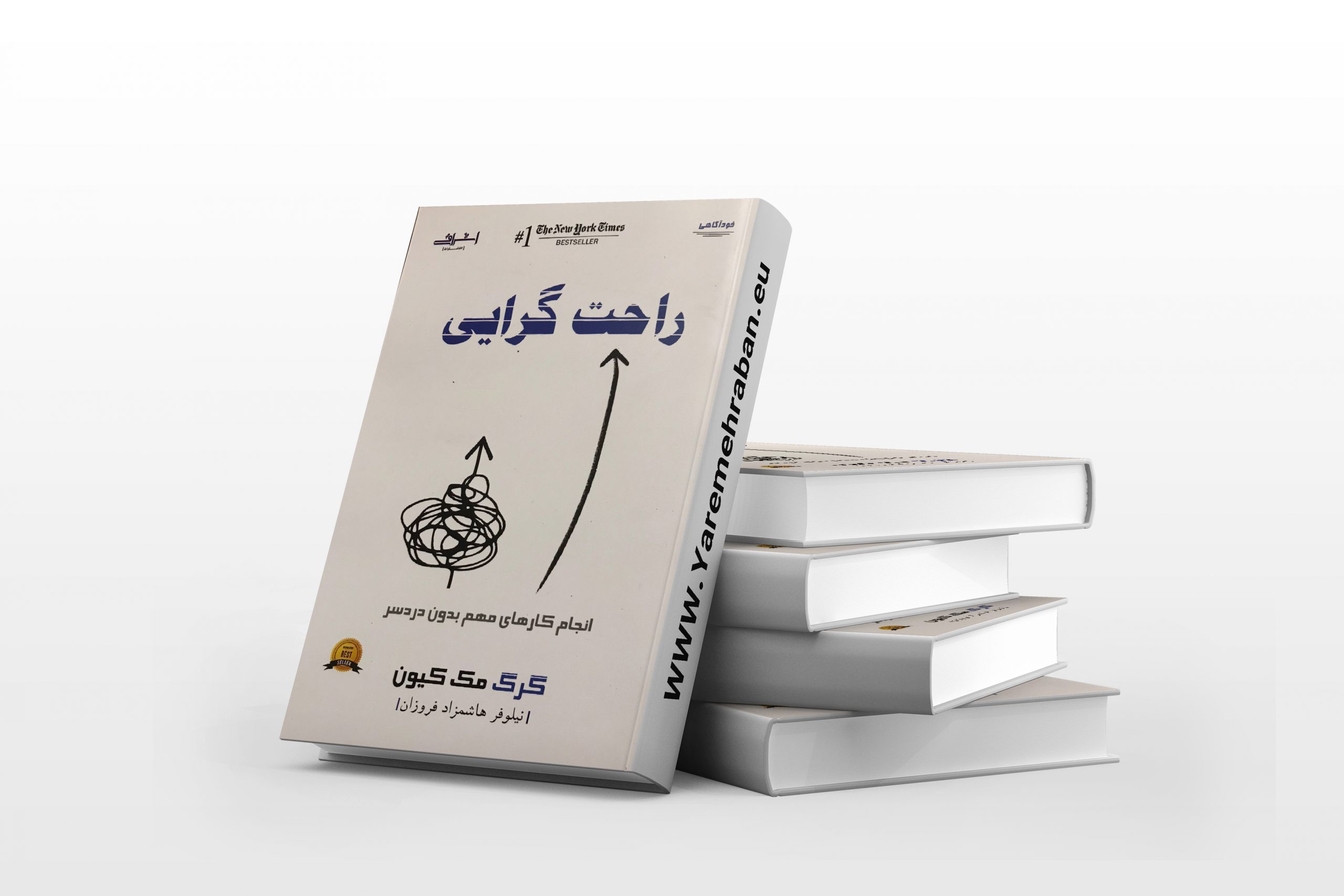

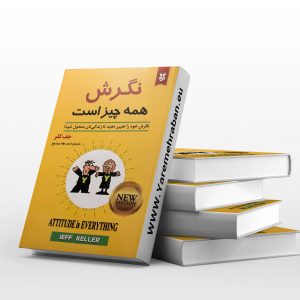
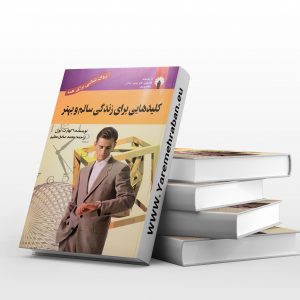
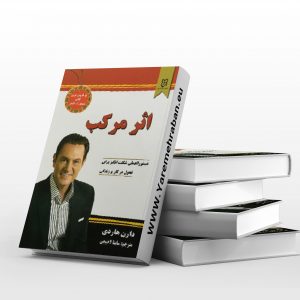



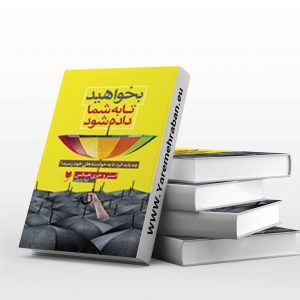

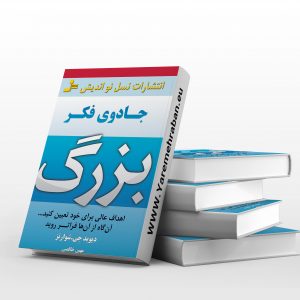
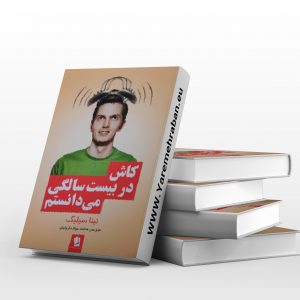

Reviews
There are no reviews yet.